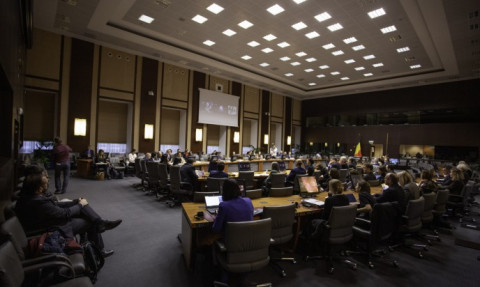
GCED Basic Search Form
Quick Search
You are here
News

Some 350 ministers, officials, representatives of development agencies and other partners from around the world joined the Global Education Meeting in Brussels from 3 to 5 December 2018 to review progress on the global Education 2030 Agenda.
Developing education systems that enable people to learn throughout life and through multiple pathways was high on the agenda in Brussels. Key messages and commitments on lifelong learning and related topics such as adult education and literacy and the recognition, validation and accreditation of non-formal and informal learning were also highlighted in the meeting’s outcome statement; they include:
- Reaffirmation of the fundamental role of education, training, lifelong learning, higher education and research as key drivers for sustainable development, including for climate change adaptation and mitigation, and [a] call for strengthened collective action on SDG 4 within the 2030 agenda.
- Commitment to include migrants, displaced persons and refugees in education and training systems and to facilitate the recognition of their qualifications, learning and skills.
- Commitment to open, flexible and responsive education and training systems that support the development of a broader range of knowledge, skills and competencies, from early childhood to adulthood.
- Ensure publicly funded, relevant initial and continuous professional development for teachers, educators, trainers and school leaders.
- Reaffirmed commitment to eradicate illiteracy through formal and non-formal education and ensure equitable access to digital literacy, as well as media and information literacy as a continuum of proficiency levels within a lifelong learning perspective.
- Commitment to supporting lifelong learning opportunities for all to ensure necessary competencies for personal development, decent work and sustainable development, with attention to climate change, adaptation and mitigation.
- Recognition of the importance of skills acquired through non-formal and informal education and learning.
The UNESCO Institute for Lifelong Learning is in the process of developing both a handbook on lifelong learning to help guide Member States in implementing relevant policies and plans and the 2019 Global Report on Adult Learning and Education (GRALE 4), which will shed light on the current state of adult education around the world.
URL:
https://en.unesco.org/themes/education/globaleducationmeeting2018
